LONDON — The congratulatory tweets from world leaders are still trickling in, but already a host of urgent international issues are begging for the attention of President-elect Joe Biden and his team.
But with domestic crises including the coronavirus pandemic, an economic recession and a national reckoning with racism on Biden’s home blotter, the new president may have to initially set aside any bold international initiatives, said Bonnie Glaser, senior adviser for Asia at the Center for Strategic and International Studies think tank.
“More than ever before, domestic priorities are going to squeeze out any foreign policy agenda in the first six months at least,” Glaser said.
That means Biden will need to set strict priorities on the global concerns he addresses, said Peter Trubowitz, director of the U.S. Center at the London School of Economics.
With that in mind, here’s where Biden will likely land on major issues and challenges facing the United States globally.
The pandemic
For Biden, an avowed multilateralist who values working with the U.S.’ traditional allies, international cooperation will be high on the agenda — and health policy is no exception.
One of Biden’s first moves as president-elect Monday was to appoint a Covid-19 advisory board to lead the new administration’s domestic response to the pandemic.
Biden has vowed to immediately restore the United States’ relationship with the World Health Organization. President Donald Trump’s administration withdrew from the WHO, and cut off its funding over the health body’s handling of the pandemic.
“It is clear that the vice president is more interested in a multilateral approach to this pandemic and to global health challenges in general,” said Thomas Bollyky, director of the global health program at the Council on Foreign Relations. The Biden campaign turned to Bollyky for advice on public health early in the campaign.
Bollyky said there is no question that, under Biden, the U.S. will play a larger international role in bringing the pandemic under control and will work with allies and international institutions to do it. But Biden is likely to focus first on bringing the domestic situation under control, as the U.S. continues to see a record number of cases.
“The reality is that the next two to three months are likely to be rather grim,” Bollyky said.
International security
With Biden’s victory, countries around the world are likely to find an America significantly more ready to consult and coordinate with its allies on security issues than under Trump, experts say.
In Europe, Trump questioned the value of the NATO alliance. But Biden has vowed to shore up transatlantic ties and committed to keeping NATO’s “military capabilities sharp,” which will reassure allies such as Poland and the Baltic states facing an increasingly assertive Russia on their eastern flank.
Moscow, meanwhile, would likely see greater pushback on its ambitions than it has under Trump, according to Keir Giles, a Russia expert at the Chatham House think tank in London. Over the last four years, Giles noted, Russia has taken advantage of the vacuum created by the absence or disengagement of the U.S., especially in Syria, he said.
In Asia, Biden has pledged to work more closely with U.S. allies to counter China, where the U.S. ambassador stepped down last month and hasn’t been replaced. Beijing has also taken a more assertive approach regionally and globally in recent years, laying claim to much of the South China Sea and clashing with its neighbors. In particular, it has ratcheted up pressure over Taiwan — the democratically-run independent island that China considers a breakaway province.
Biden will have to decide how far the United States is willing to go in supporting and arming Taiwan. “If Biden wants to enhance the credibility of the U.S. with allies in Asia, then moving away from the expectation of a robust U.S. effort to defend Taiwan would be the wrong way to do it,” said David Gordon, a former director of policy planning at the State Department.
Trump rattled South Korea earlier this year by pushing Seoul to dramatically increase its payments for the stationing of American troops in the country, a move Biden said amounted to extortion of a longtime ally. North Korea, meanwhile, came out ahead under Trump, who touted his great relationship with its leader Kim Jong Un would reset relations between the adversarial nations but did not manage to secure any agreement to scale back Pyongyang’s nuclear weapons program.
Download the NBC News app for breaking news and politics
Despite that, given the many challenges that Biden faces coming into office, it’s not clear that North Korea will be an early priority for Biden, said Cristina Varriale, a research fellow focusing on North Korea at the Royal United Services Institute think tank in London.
Biden’s election could also create an opportunity for new negotiations with Iran.
The president-elect has pledged to re-enter the United States into the 2015 nuclear deal with Iran, which Trump withdrew from, if Tehran returns to compliance. This promise has unnerved the U.S.’ long-term allies such as Israel, which views Iran as an existential threat, and Saudi Arabia, which sees Iran as a major rival for regional dominance.
The Iranian Rial rose to a two-month high against the U.S. dollar Saturday on news of Biden’s win.
Neighboring Afghanistan is likely to see a reduction in U.S. troops under a Biden administration, though likely not the full withdrawal pledged by Trump last month. The president-elect has vowed to bring the majority of U.S. troops home and focus American efforts there on fighting groups such as al-Qaida and the Islamic State terrorist organization.
Climate change
Biden’s view of climate change as a global challenge that requires international cooperation is likely to mean a wholesale reversal from Trump’s four years of climate policy, experts say.
Biden has pledged to rejoin the landmark Paris accord, an international effort aimed at keeping climate change in check, from which Trump withdrew.
World leaders have taken note of the president-elect’s position, with some using the issue to find common ground with him. British Prime Minister Boris Johnson, whose government is desperate for a trade deal with the U.S. after the United Kingdom’s departure from the European Union, mentioned it as one of three critical issues for the two countries to tackle together.
China’s state owned Global Times newspaper also highlighted climate change as a potential area of collaboration with the incoming administration.Biden’s advisers have said the new administration would be open to forging common ground with China on climate, despite deep disagreements over trade and other issues.
Biden has, however, indicated his readiness to hold China, the world’s second-largest economy and its biggest greenhouse gas producer, accountable on the issue. His platform vows to make any future bilateral U.S.-China agreements on carbon mitigation contingent on China eliminating “unjustified export subsidies for coal and other high-emissions technologies.”
A Biden presidency could provide a new impetus and consensus for international efforts to combat climate change, said Laura Diaz Anadon, professor of climate change policy at the University of Cambridge.
“Perhaps it could even contribute to some countries ‘upping’ each other, partly because there could be some competitiveness benefits from well-designed policies for first mover countries in clean technologies,” she said.
Biden’s platform calls for a climate world summit to directly engage the leaders of the major carbon-emitting nations, but also promises to “name and shame global climate outlaws,” and stop countries from cheating on their climate commitments.
Trade
How Biden goes about enacting U.S. trade policy is likely to be miles apart from the way Trump has, experts say.
“The key difference between Biden and Trump’s trade policy is that a Biden administration would work more closely with Western allies and use international institutions more constructively,” said Jeffrey Schott, a senior fellow at the Peterson Institute for International Economics and a former official of the U.S. Treasury Department.
America’s most difficult trade challenge – China – is not likely to end even with a new president in the White House. Trump, who signed a Phase 1 trade deal with China in January after the two countries were plunged into a costly trade war, made getting tough on Beijing a key part of his campaign for re-election. Under Biden, tensions with China would persist, but there would be an effort to avoid clashes or surprise moves with allies over trade.
Bloomberg Economics estimated in 2019 that the cost in lost U.S. gross domestic product from the trade war will rise to a total of $316 billion by the end of 2020. For China, the tariffs caused a $35 billion blow to its exports in the first half of 2019, according to a United Nations report.
The substance of Biden’s policy toward China isn’t wildly different from Trump’s, as there is a consensus in Washington that Beijing is engaged in intellectual property theft, blocking access to its markets and pursuing an array of unfair trade practices. But the tone and the tactics under Biden will be different – and most likely less confrontational, experts and former U.S. officials said.
It’s still an open question how Biden will handle the trade war, and under what conditions he would be willing to lift any of the tariffs imposed by his predecessor.
The same goes for the tariffs Trump introduced on goods from the European Union, which Biden could either leave in place, roll back unconditionally or connect to cooperation on other issues such as Chinese investment and 5G technology.
“It’s hard to see Biden, who has limited political capital, using it up on trade policy right out of the box,” Trubowitz said.
One of the Biden administration’s first trade priorities would likely be getting the appeals process back on track at the World Trade Organization, according to Schott. Under Trump, the U.S. blocked appointments to the WTO’s Appellate Body, which acts as a supreme court for international trade, leaving it unable to issue rulings.
The United Kingdom, meanwhile, one of the U.S.’ closest allies, is waiting anxiously tosee how Biden will handle their much-awaited post-Brexit trade deal. It has been one of the U.K.’s top priorities, and Trump’s support for Brexit had officials hoping that a deal could be relatively painless.
Biden, however, made clear in September that he wouldn’t support any trade deal with London if it endangered the Good Friday peace agreement in Northern Ireland, the scene of some 30 years of sectarian violence.
Human rights
As part of his plan to restore U.S. “moral leadership” around the world, Biden has said he wants to recommit America to advancing human rights globally.
He told The New York Times earlier this year “human rights will be at the core of U.S. foreign policy” when he is president. He has also vowed to host a global “Summit for Democracy” that will encourage nations to advance human rights at home and abroad. Biden and his supporters accused Trump of ignoring human rights abuses around the world – except in China – and failing to hold authoritarian rulers accountable.
“Human rights are likely to feature regularly in the vocabulary of a Biden presidency as an important part of U.S. foreign policy and global values,” said Chaloka Beyani, an associate law professor at London School of Economics, who specializes in international law and human rights.
And while the Trump administration has criticized China’s treatment of Muslim minorities – in particular the Uighurs – and protesters in Hong Kong, Biden has at times gone even further than the outgoing president in attacking China, having previously referring to President Xi Jinping as a “thug.”
In the Middle East, meanwhile, countries like Saudi Arabia could see a change from the U.S. approach under Trump, who not only refrained from criticizing Riyadh’s rulers even after the killing of Saudi commentator Jamal Khashoggi, but also actively touted his warm relations with Crown Prince Mohammed bin Salman. Biden has pledged to reassess the U.S. relationship with Saudi Arabia, which under the crown prince forged a strong relationship with Trump despite a brutal crackdown on dissent.
“In the Middle East, there is less likely to be privileged or preferential treatment for some countries because of considerations based on poor human rights and governance records,” Beyani said. “A Biden presidency is unlikely to be populist about human rights.”
The Biden team will likely make clear that “alliances are a two-way street and that there are some criteria that they have to meet if they want to be allies,” said Ali Soufan, a former FBI agent and CEO of the Soufan Group, a private security consultancy.
Biden is not expected to make any major changes to America’s close relationship with Israel, which is criticized for its treatment of the Palestinians.
However, Palestinian President Mahmoud Abbas has said that he looked forward to working with Biden and his administration, a marked change from the Palestinians’ refusal to engage with the Trump administration for what they have said is its pro-Israel bias.
Reuters contributed to this report.
Rachel Elbaum and Yuliya Talmazan reported from London, Dan De Luce from Washington, D.C.

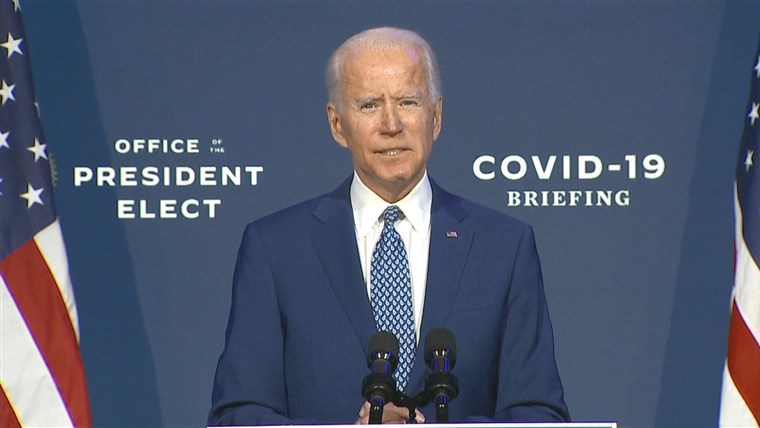
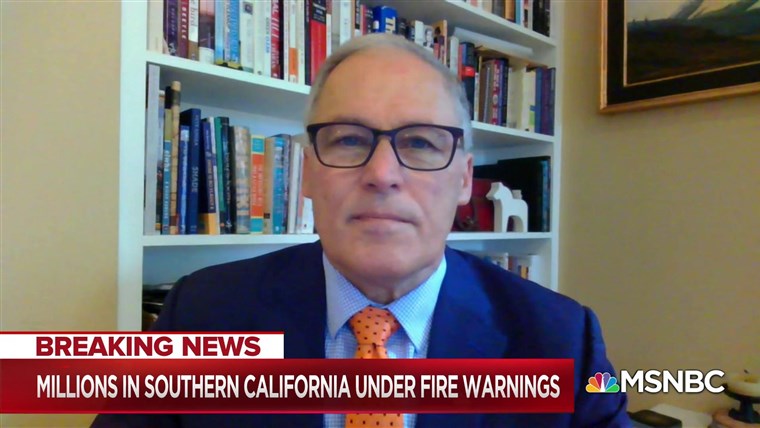
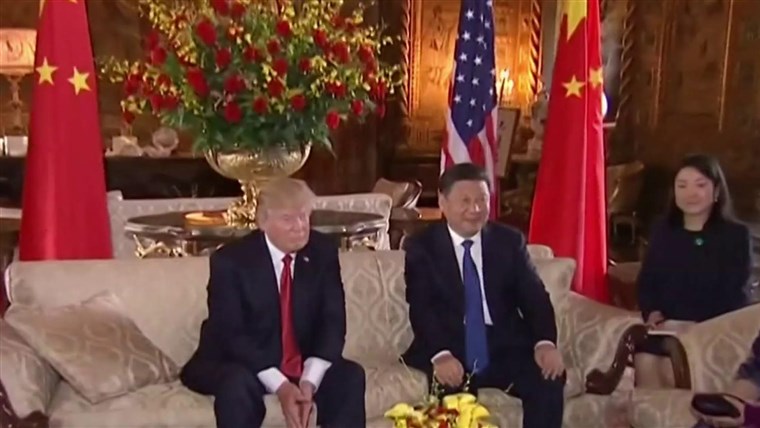





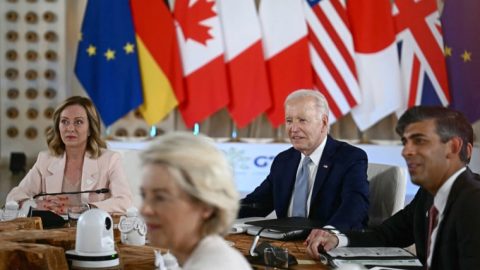
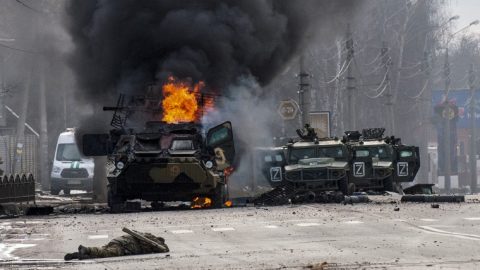

Recent Comments